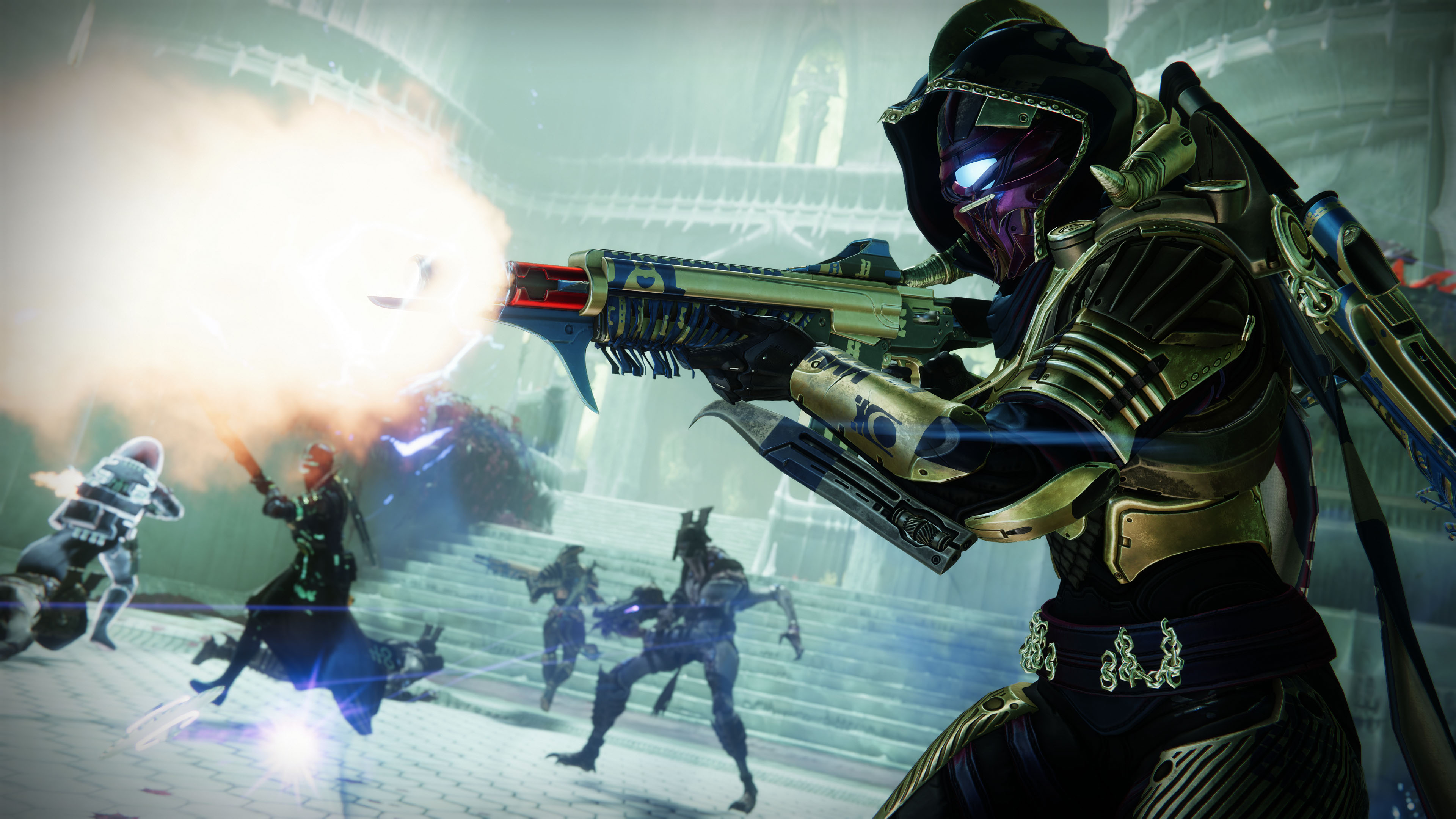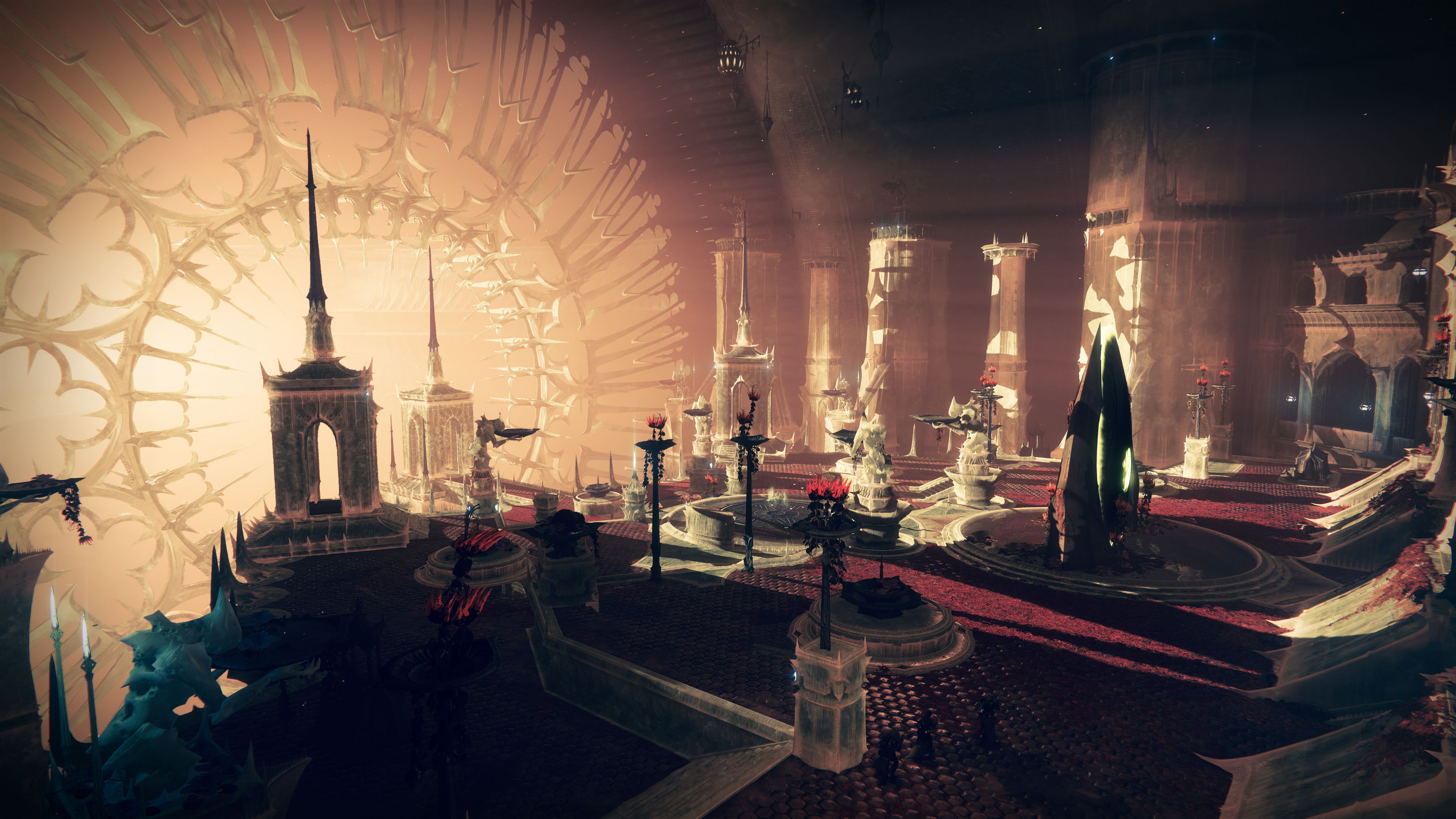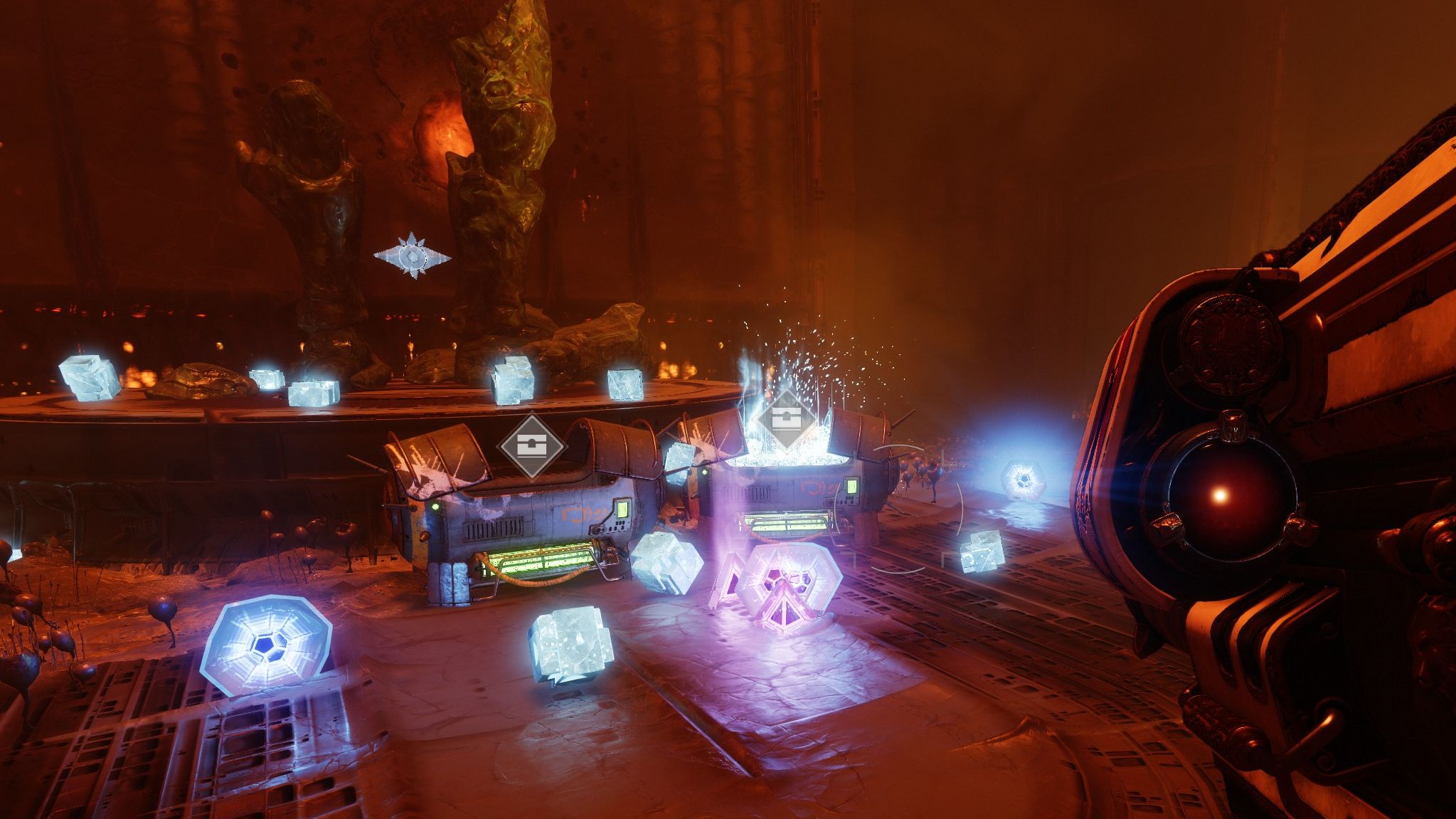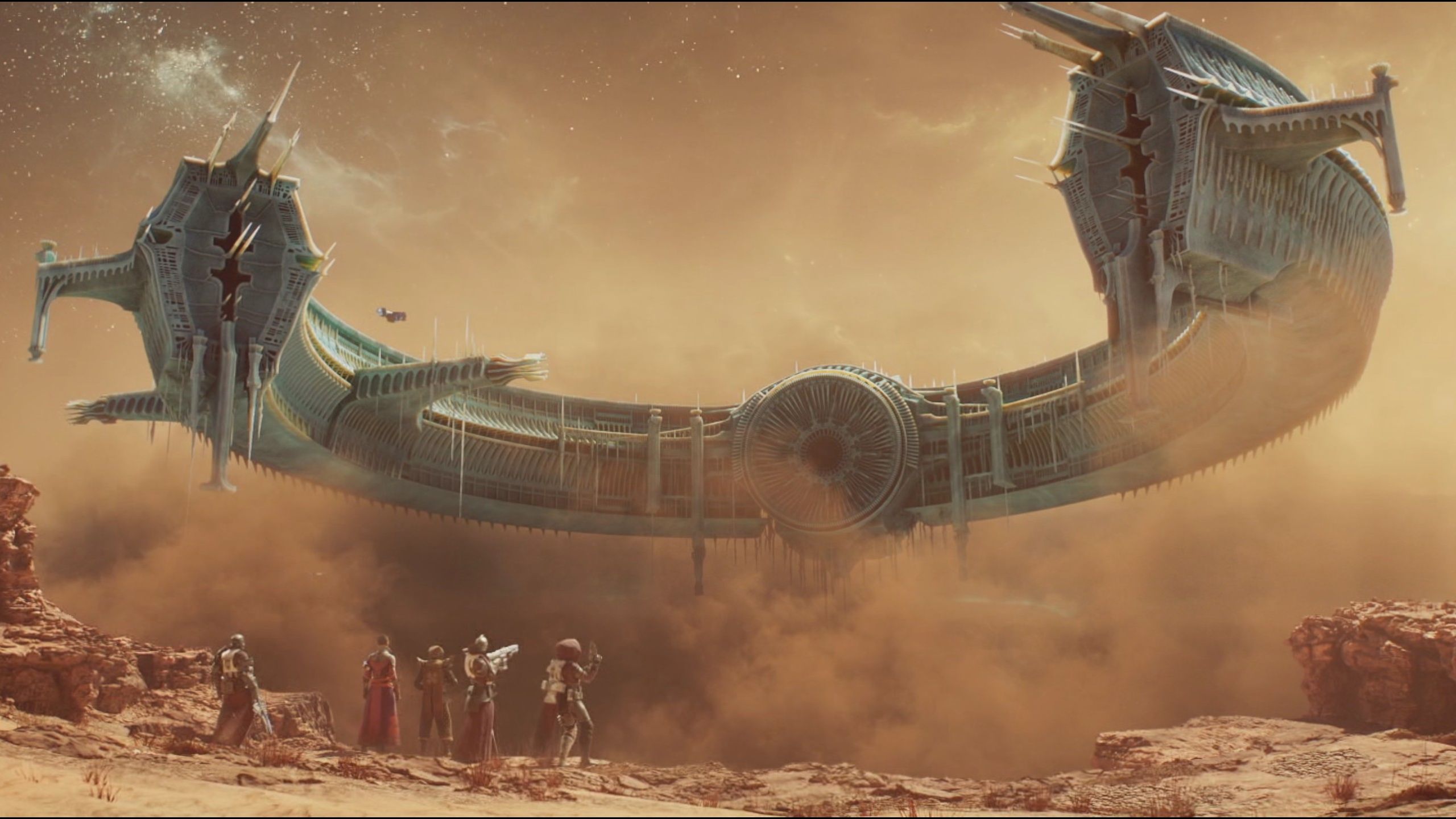Has Destiny 2 just delivered the best shooter campaign of the year?
The Witch Queen's campaign is a triumph, and made better by the new Legendary difficulty option.

When Bungie referenced series like Doom and Halo in the run-up to The Witch Queen's launch, I was sceptical. Most of Destiny 2's expansion campaigns have been weak—hampered by Bungie's desire to repurpose missions for repeatable activities like Beyond Light's Empire Hunts, which served to give players something to do before the later, more fleshed out seasons arrived. It meant that some of the biggest moments of each campaign—including Beyond Light's final boss—adhered to the rigid template of their associated activity.
But each of The Witch Queen's eight campaign missions feel like they were handcrafted for this story. And that's because they were. This time the story itself is repeatable, which means the missions are free to stand on their own. This might seem like an academic distinction, but it makes a world of difference and gives Bungie the freedom to actually surprise and delight. And given the nature of the story The Witch Queen is telling, it frequently delivers as well. This isn't just a good shooter: thanks to the last year of work telling Savathun's story, the plot even has some emotional weight behind it. And the twists and revelations set a fascinating course for the next year of seasonal stories.

The campaign easily justifies the price of admission: it's some of Bungie's best work (in the Destiny universe, at least). And Legendary difficulty elevates it further, earning those comparisons to Doom, et al.
Whenever anyone asks why I've put as many hours as I have into Destiny 2, my glib response is that it feels good to shoot the guns. This is true—Bungie's knack for creating satisfying weapons is one of the studio's greatest strengths—but it's also not the whole story. The reason I've spent so much time with the game is because it has the systems and build diversity to reward that investment. The guns may feel good, but they're also a catalogue of options tailored to solve the problems the game can present.
The problem with this is that, outside of high-level content like raids, Nightfalls and the occasional Exotic mission, the game rarely challenges players to meaningfully engage with those options. The Legendary campaign, then, represents a positive step in how Bungie approaches difficulty—taking lessons from dungeons, but throwing in a contest modifier that caps your power to ensure you can't just outlevel the difficulty.

Scorned
Three missions into my attempt to solo the Legendary difficulty campaign, I realised that Bungie wasn't messing around. The first two missions had been dispatched with relative ease by just playing it safe: sticking to cover and using a scout rifle to engage at range. The enemies hit hard, but with the right mods, a cautious playstyle, and the Warlock's trusty Well of Radiance super, I was making my way through reasonably unscathed. It was working. Until it wasn't.
The third mission, The Ghosts, ends with a boss fight that represents the first big difficulty spike of the campaign. There's no cover, just a central arena with a corridor running around the outside. You can break line of sight, but stand still too long and enemies will flank and surround you. And that's to say nothing of the boss—a reprise of the Scorn Ravager found at the end of last year's Presage mission (itself a reprise of The Hangman from the Forsaken campaign). His heavy slam attacks will one-shot you if you're not paying attention.
The biggest gaming news, reviews and hardware deals
Keep up to date with the most important stories and the best deals, as picked by the PC Gamer team.
This is what I want from Destiny 2: a campaign that justifies the level of buildcrafting the game offers
Instantly my build fell apart. ADS'ing to line up a perfect headshot was a death sentence. Even Well of Radiance couldn't withstand the pressure, likely due to my habit of underinvesting in armour with the resilience stat.
But this is what I want from Destiny 2: a campaign that justifies the level of buildcrafting the game offers. In working to overcome that boss, I transitioned to a build that favoured charging into packs of enemies, using the Warlock's Devour perk to restore health on kills. Gjallarhorn's Wolf Pack rounds cleared adds while also doing solid boss damage. Null Composure's reservoir burst took down clusters of enemies, quickly refreshing my health. A solar damage resist mod shook off the worst of the boss's flame wave attack.
Experimentation is welcome thanks to a few other changes to the structure of campaign missions. Before the most difficult encounters, rally flag points fill your ammo and super, so if you wipe, you can change your loadout and be instantly refreshed to full power. And when you complete these encounters, you get mid-mission loot chests, rewarding both guns and—most importantly—upgrade modules that let you infuse your gear. This means that you can easily dig a more useful gun out of your vault and upgrade it to the power level of the current mission, because you're being given exactly the resources needed to do that.

Throughout the campaign I encountered plenty of these moments, where I was forced to stop and consider the tools I'd need to overcome the challenge I'd been given. The new Lucent Hive are another great example. Like Guardians, they're empowered with the Light—they can even use our ultimate abilities. They're a target you want to prioritise, but they can also respawn after they're killed. To stop that from happening, you have to walk up to their corpse and crush their Ghost—which is risky if you haven't first taken out their allies. And so you're forced to clear the field while dodging some of the most deadly attacks in your enemy's arsenal, until you're sure you have enough space to be able to finish the job.
Unlike the other times Destiny has made me consider buildcraft and tactics—usually with my fireteam as we prepare to tackle a dungeon or Grandmaster Nightfall—this was on my own, in a part of the game that isn't locked behind a power grind. That I can instantly jump into a new expansion and be challenged from the off gives The Witch Queen a very different feel to its predecessors. Cleverly, though, it will also bear repeat attempts with friends, as the challenge increases the more people you bring into the mission, with limited res tokens to ensure you can't brute force your way through.
It's good that the regular difficulty mode is there as usual, and either way The Witch Queen campaign is still an incredible step-up from previous expansions. But on Legendary, the campaign showcases the best of what Destiny 2 can be as a full live-service RPG—and with rewards that make it actually worth the extra challenge. As a veteran player, I'm hoping this is just the start of how Bungie is thinking about Destiny 2's difficulty.
- Where is Xur: Find Destiny 2's exotics dealer is this week.
- Destiny 2: The Witch Queen review: The best expansion yet.

Phil has been writing for PC Gamer for nearly a decade, starting out as a freelance writer covering everything from free games to MMOs. He eventually joined full-time as a news writer, before moving to the magazine to review immersive sims, RPGs and Hitman games. Now he leads PC Gamer's UK team, but still sometimes finds the time to write about his ongoing obsessions with Destiny 2, GTA Online and Apex Legends. When he's not levelling up battle passes, he's checking out the latest tactics game or dipping back into Guild Wars 2. He's largely responsible for the whole Tub Geralt thing, but still isn't sorry.

